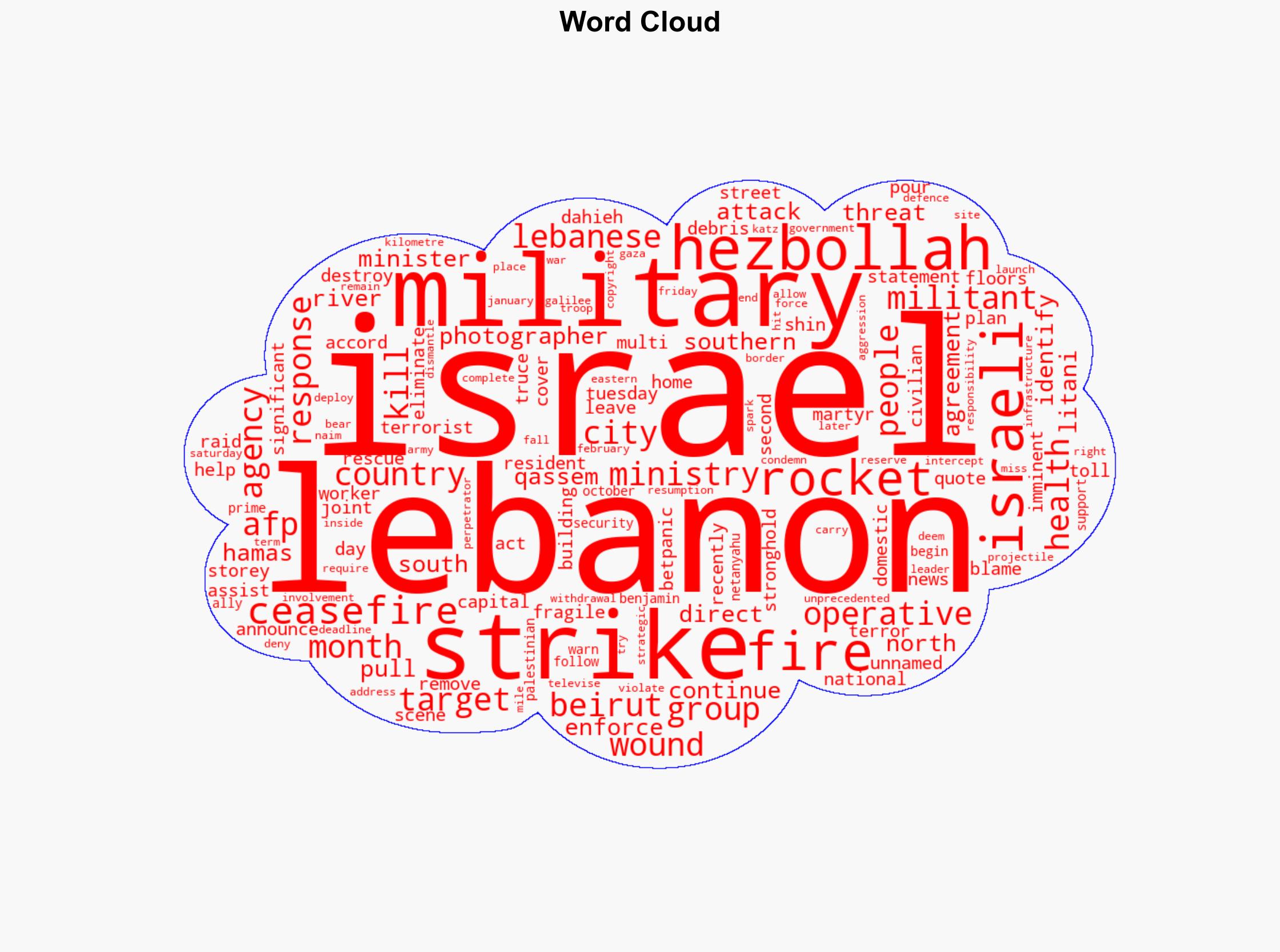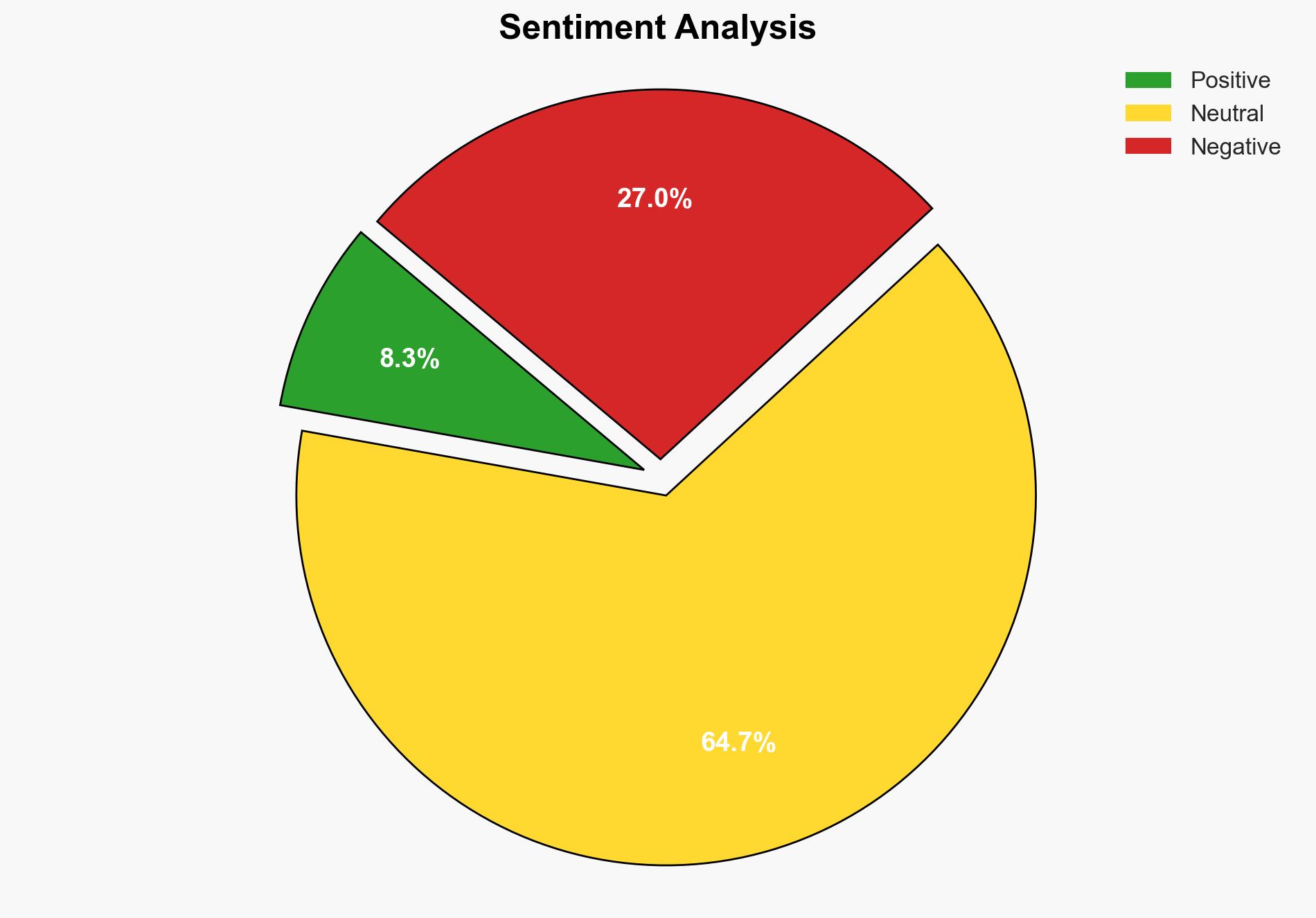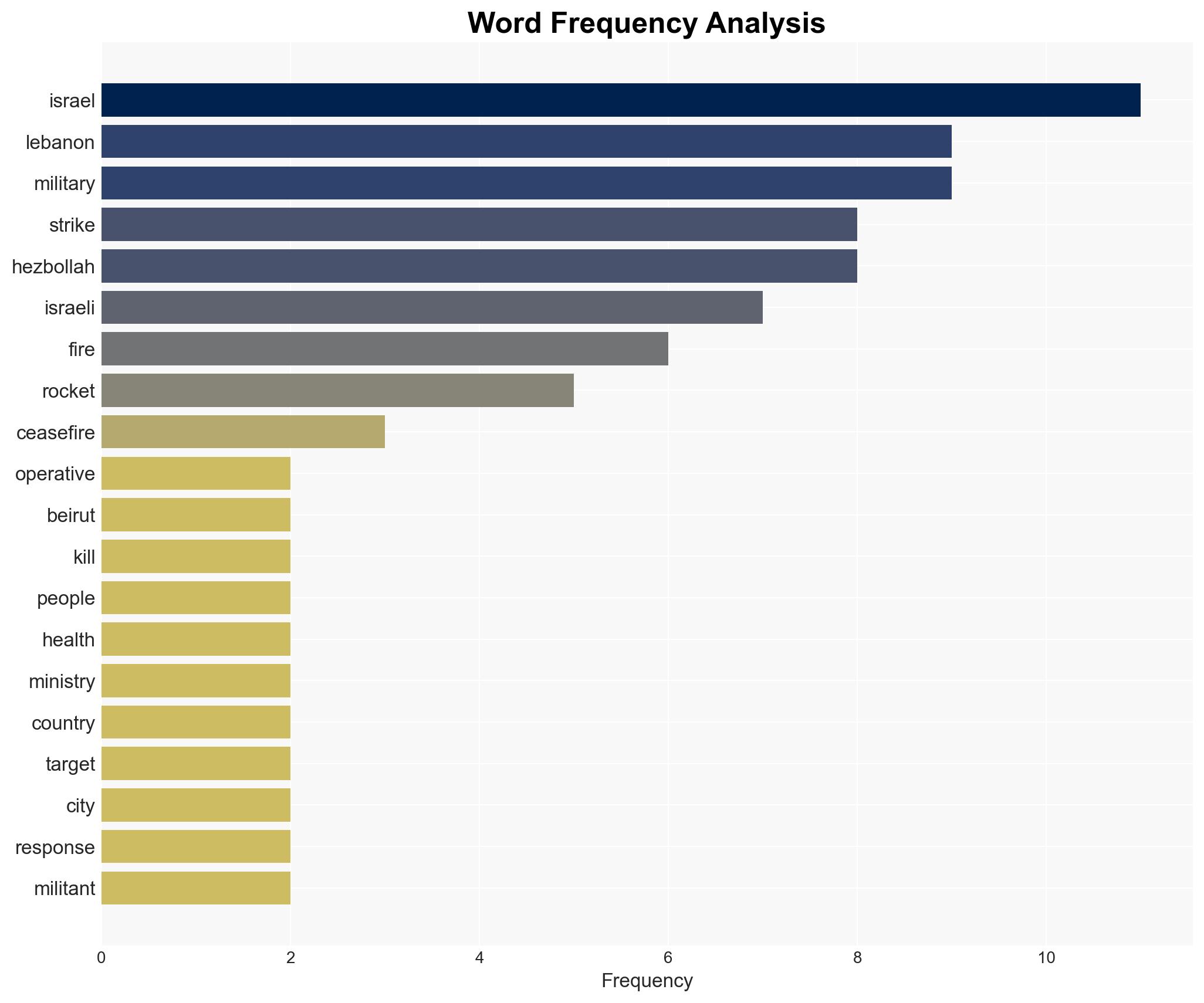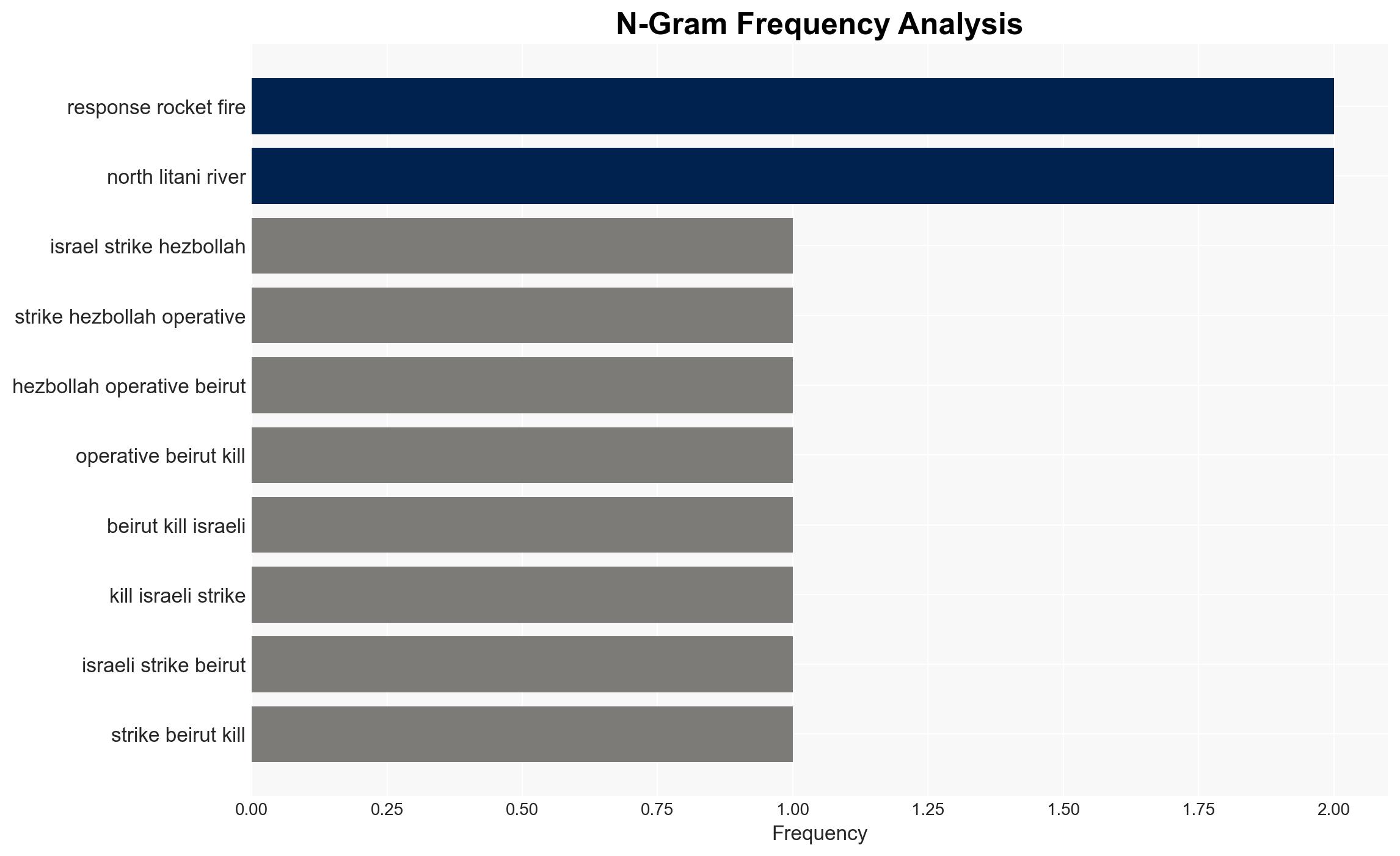Israel Strikes Hezbollah Operative In Beirut Kills 3 – International Business Times
Published on: 2025-04-01
Intelligence Report: Israel Strikes Hezbollah Operative In Beirut Kills 3 – International Business Times
1. BLUF (Bottom Line Up Front)
An Israeli military strike in Beirut targeted a Hezbollah operative, resulting in three fatalities. This action follows recent rocket fire from Lebanon into Israel, attributed to Hezbollah. The strike marks a significant escalation in tensions, undermining the fragile truce established in the region. Immediate strategic recommendations include enhancing diplomatic efforts to stabilize the region and preparing for potential retaliatory actions.
2. Detailed Analysis
The following structured analytic techniques have been applied for this analysis:
General Analysis
The Israeli strike in Beirut is a direct response to rocket fire from Lebanon, which Israel attributes to Hezbollah. This incident highlights the ongoing volatility in the region, exacerbated by recent conflicts involving Hamas and Israel. The destruction of a multi-storey building in a Hezbollah stronghold indicates a targeted operation aimed at dismantling militant infrastructure. The Lebanese Health Ministry reports casualties and injuries, reflecting the strike’s immediate humanitarian impact. The Israeli military’s statement suggests the operation was preemptive, aimed at thwarting an imminent terror threat.
3. Implications and Strategic Risks
The escalation poses significant risks to regional stability, with potential spillover effects into neighboring countries. The renewed hostilities threaten to derail diplomatic efforts and could lead to broader military engagements. Economic interests in the region may suffer due to increased instability, affecting trade routes and investor confidence. The potential for retaliatory attacks by Hezbollah or allied groups remains high, posing a direct threat to national security.
4. Recommendations and Outlook
Recommendations:
- Enhance diplomatic engagement with regional stakeholders to de-escalate tensions and reinforce ceasefire agreements.
- Increase intelligence-sharing initiatives to better anticipate and mitigate threats from militant groups.
- Strengthen border security measures to prevent cross-border attacks and infiltration.
Outlook:
Best-case scenario: Diplomatic efforts succeed in reinstating a ceasefire, reducing hostilities and stabilizing the region.
Worst-case scenario: Continued military engagements lead to a broader conflict involving multiple regional actors.
Most likely outcome: Sporadic skirmishes persist, with intermittent diplomatic interventions maintaining a tenuous peace.
5. Key Individuals and Entities
The report mentions significant individuals and organizations involved in the events:
Benjamin Netanyahu – Israeli Prime Minister who has warned of further military actions.
Naim Qassem – Hezbollah leader who condemned the Israeli strikes.
Israel Katz – Israeli Defence Minister emphasizing Lebanon’s responsibility for rocket fire.




